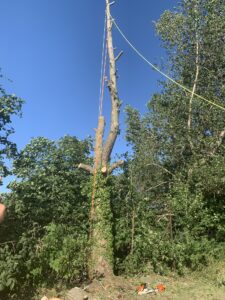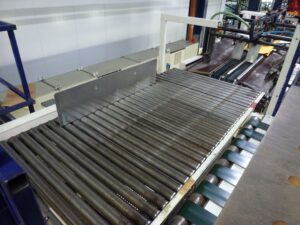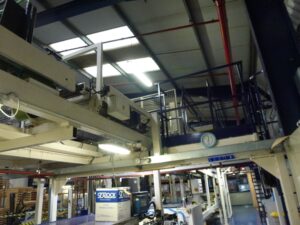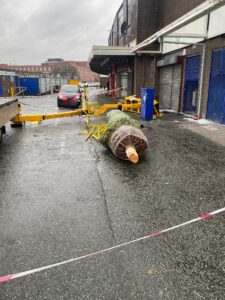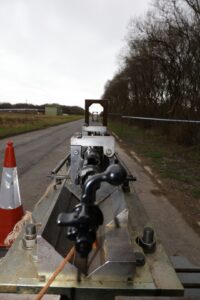Fine for manufacturing firm after man loses finger in machinery
A manufacturing company has been fined £20,000 after a worker lost part of his finger in machinery at its site in St Helens.
The man was injured at Film & Foil Solutions Ltd, which makes flexible film used in the food industry, on 4 December 2023.
He was using a machine that converts and folds plastic film at the company’s site on Haydock Industrial Estate. He tried to stop the material becoming tangled by using his hand to stop the poorly guarded rotating shaft. However, in doing so, his right index finger made contact with a rotating part of the machine and became entangled.
He was taken to hospital and due to the seriousness of the injuries, surgery was carried out the following day to amputate part of the finger on his dominant right hand. In a statement provided to HSE, the employee, who doesn’t wish to be named, described the impact of the injuries.
He said: “I was unable to carry out normal daily tasks such as tying my shoelaces.
“My right hand is my dominant hand and I find it extremely difficult to write with that hand now.
“I am now self-conscious when I go outside.
“My family have also been affected by the injury as I am unable to do normal things I used to be able to do before.
“As a result of the injury I feel my job prospects have been affected, both now and in the future.”
An investigation by the Health and Safety Executive (HSE) found that Film & Foil Solutions Ltd failed to protect its employees, including ensuring the machinery being used to produce it had suitable guarding. The company had failed to carry out a suitable and sufficient risk assessment, resulting in a failure to provide suitable guarding arrangements on the machine and had failed to put in place an adequate safe system of work. It also revealed inconsistencies and inadequacies in the provision of information, instruction and training for those required to use the machine.
HSE guidance states employers must take effective measures to prevent access to dangerous parts of machinery or to stop the movement of any dangerous parts of it before any part of a person enters a danger zone. This will normally be by fixed guarding, but where routine access is needed, other measures may be needed to stop the movement of dangerous parts, for example by having interlocked guards, pressure mats and electro-sensitive protective equipment (ESPE). Further detailed guidance on safe working with machinery is available.
Film & Foil Solutions Ltd, of North Florida Road, Haydock Industrial
Estate, Haydock, St. Helens, Merseyside, pleaded guilty to breaching Regulation 11(1) of The Provision and Use of Work Equipment Regulations 1998. The company was fined £20,000 and ordered to pay £2,932 in costs at Sefton Magistrates’ Court on 15 May 2025.
HSE inspector Sam Eves said “This incident could so easily have been avoided had the company taken simple steps to guard dangerous parts of machinery and implement safe working practices.
“Companies and individuals should be aware that HSE will not hesitate to take appropriate enforcement action against those that fall below the required standards.”
This HSE prosecution was brought by HSE Enforcement Lawyer Matthew Reynolds and supported by Paralegal Officer Imogen Isaac.
Further information:
- The Health and Safety Executive (HSE) is Britain’s national regulator for workplace health and safety. We are dedicated to protecting people and places, and helping everyone lead safer and healthier lives.
- More information about the legislation referred to in this case is available.
- Further details on the latest HSE news releases is available.
- detailed guidance on safe working with machinery is available.
- HSE does not pass sentences, set guidelines or collect any fines imposed. Relevant sentencing guidelines must be followed unless the court is satisfied that it would be contrary to the interests of justice to do so. The sentencing guidelines for health and safety offences can be found here.




